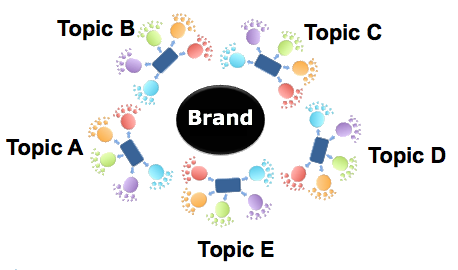 Copywriting for the web is a true art form, whether you’re writing web pages, press releases or landing pages. Add the practice of search engine optimization and it can get even trickier. Too much focus on SEO and that high ranking web page may confuse readers, resulting in lacking conversions. Too little focus on keywords and search traffic will suffer. Both questions remind copywriters to consider who their target audience really is: search engines or customers?
Copywriting for the web is a true art form, whether you’re writing web pages, press releases or landing pages. Add the practice of search engine optimization and it can get even trickier. Too much focus on SEO and that high ranking web page may confuse readers, resulting in lacking conversions. Too little focus on keywords and search traffic will suffer. Both questions remind copywriters to consider who their target audience really is: search engines or customers?
Obviously it’s both and working with a Keyword Glossary can provide copywriters with a solid guideline for topic planning, organization and emphasis so that both engines and customers are being optimized for.
While many companies have bought in to the fact that they need to make their content more “findable” and socially interesting to reach and engage more customers, the implementation is often a bit fragmented.
For effective Internet Marketing, it’s important to promote a diversity of content according to the audience segments your company is after. That means promoting keyword optimization of content holistically and across channels. Not only can keyword optimization work to make content more discoverable through search, but it should improve user experience as well.
A Cross Channel Keyword Optimization effort means incorporating relevant keywords in more content than just product and service web pages on the corporate website. As companies evolve their Content Marketing Strategy, developing purposeful content across the organization, there’s an opportunity to help that content become much easier for intended audiences to find. That means, Human Resources, Public Relations, Customer Service as well as Marketing and Sales.
Individually, there’s benefit to each of those content producers for being more effective at connecting with more of their target audience. More candidates in the hiring pipeline, more media inquiries from industry publications, more problems solved online vs. call centers and more inquiries, leads and sales. Collectively, each of those content producers can coordinate via shared Keyword Glossaries to elevate overall keyword visibility by leveraging relevant cross linking, social content promotion and content creation.

Should you use the same keyword across multiple mediums? If your SEO Strategy calls for your company to dominate on certain high level topics, then the answer is yes. Web pages, blog posts, guest posts, contributed articles in industry publications, press releases, YouTube videos, Tweets, Facebook status updates, public Google+ updates and any other public content that can be discovered and crawled by a search engine (as well as consumed by your target audience) is ripe for consistent keyword usage. If Marketing can work together with Public Relations, Customer Service, IT, HR, Legal, Marketing & Business Partners, Resellers, Dealer Networks, Distributors, Affiliates and any other content producers, the whole is definitely more than the sum of the parts.
Messaging builds the brand and keyword messaging makes that brand easy to find. Companies that invest in their brand pay close attention to messaging. There are communication and identity standards that guide content producers to keep that core messaging relevant and congruent with overall brand goals. Use of congruent keywords across content and media isn’t that much different. In some companies, keyword messaging and brand messaging are the same thing.
The takeaway here is, expand the scope of what you see as “optimizable” content. Understand that in a competitive market, it’s essential that marketing coordinates with other content producers in the organization and that SEO expertise should be brought in to work with Content Strategy and Planning. Architecting an effective Content Marketing program means understanding customers and the content that will inspire them to the business outcomes your’re after. It also means being effective at using the language in copy that makes it easy for prospects to find through search.
My question for you is: Are you implementing interdepartmental coordination with SEO copywriting in your company? Do you share keyword glossaries between Marketing, PR, HR, Customer Service and other departments? Do you cross-train on SEO best practices with groups outside of Marketing and PR?


